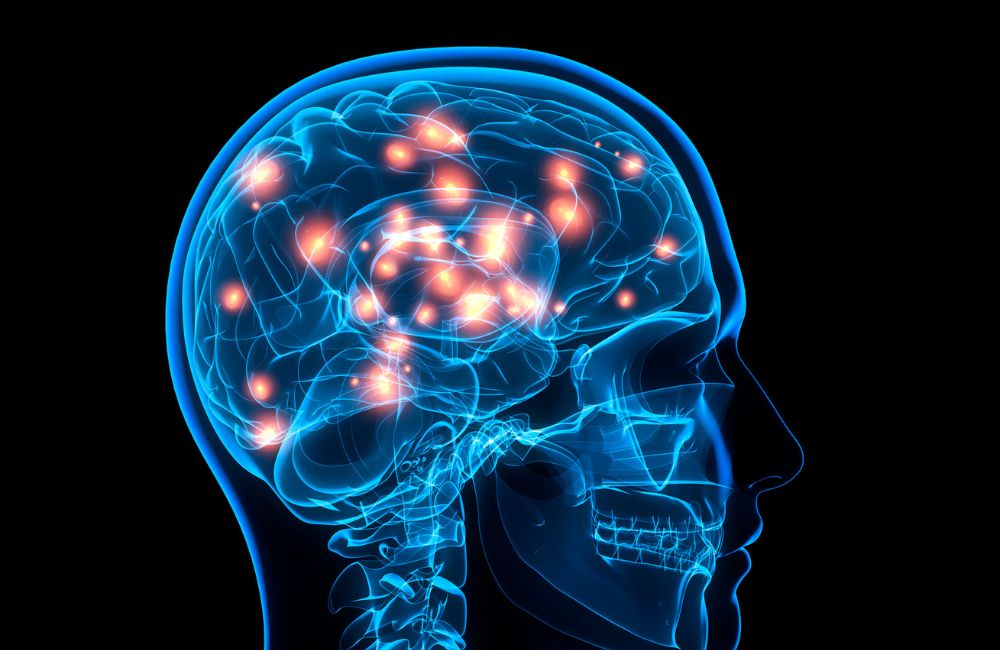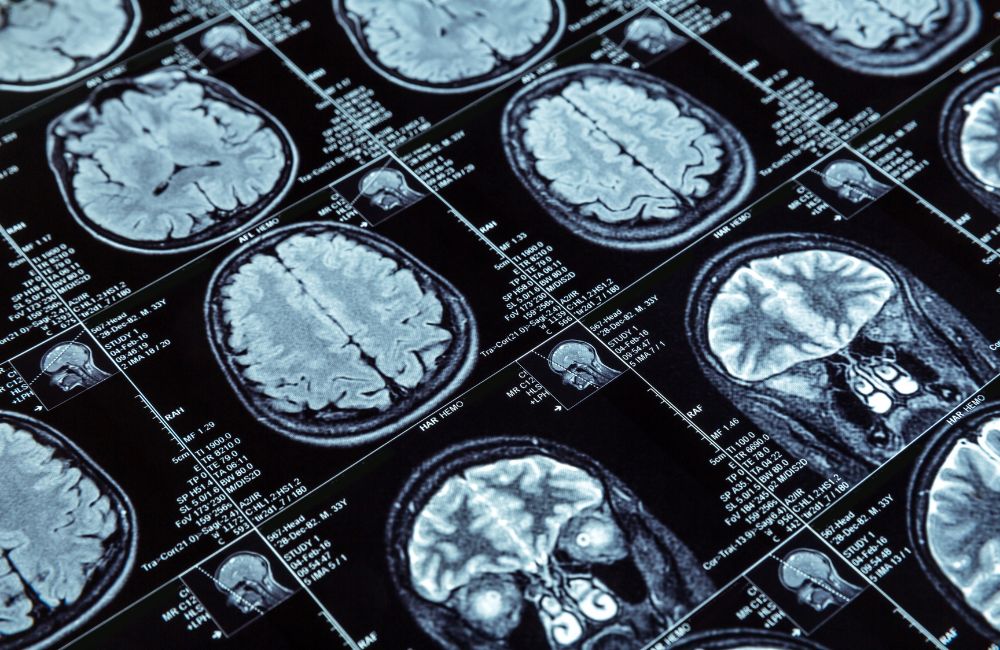Depression is a debilitating mental health disorder that affects millions globally. Traditional treatments, such as antidepressants and psychotherapy, can be effective but often come with limitations, including inadequate response and significant side effects.
Recently, magnetic stimulation for depression, specifically Transcranial Magnetic Stimulation (TMS), has emerged as a promising alternative for those unresponsive to conventional treatments. TMS is a non-invasive procedure that uses magnetic fields to stimulate brain nerve cells, showing great potential in alleviating depressive symptoms.
Here are the eight key benefits of magnetic stimulation for depression in Danbury, CT, highlighting why this treatment is gaining popularity and how it could benefit you or a loved one.
Table of Contents
Key Takeaways
What is Magnetic Stimulation for Depression?
8 Key Benefits of Magnetic Stimulation for Depression
1. Mood Improvement
2. Increased Motivation and Energy
3. Decreased Anxiety
4. Improved Sleep
5. Reduced Symptoms of Depression
6. Improved Cognitive Functioning
7. Enhanced Brain Activity
8. Avoidance of Medication Side Effects
What to Expect During and After Treatment
Is Magnetic Stimulation Right for You?
Frequently Asked Questions
Take the Next Step Towards Better Mental Health with Contemporary Care Center!
| Key Takeaways ✔ Magnetic stimulation for depression focuses on the prefrontal cortex, helping to improve mood by enhancing neural activity. ✔ TMS is especially beneficial for individuals who have not responded to traditional antidepressant medications. ✔ TMS stimulates neurotransmitter production, increasing motivation and energy levels, which helps break the cycle of depression. ✔ Magnetic stimulation for depression decreases anxiety by targeting specific brain circuits and lowering stress hormones like cortisol. ✔ By regulating brain activity, TMS helps normalize sleep-wake cycles and reduce insomnia symptoms, leading to better overall health. ✔ TMS improves cognitive abilities, including memory, focus, and problem-solving, by promoting brain plasticity and neural connectivity. ✔ As a non-invasive, drug-free treatment, TMS reduces the risk of systemic side effects associated with antidepressants. ✔ Magnetic stimulation for depression promotes sustained brain activity, contributing to long-term mental health and reducing the risk of depression relapse. |
What is Magnetic Stimulation for Depression?
Magnetic stimulation for depression involves placing a magnetic coil on the scalp, typically near the forehead. This coil generates magnetic fields that penetrate the brain, particularly targeting the prefrontal cortex—a region responsible for mood regulation. TMS was approved by the FDA in 2008 as a treatment for major depressive disorder, particularly for patients who have not responded to other treatments.
The stimulation delivered by TMS is designed to enhance neural activity in areas of the brain that are underactive in individuals with depression. Unlike electroconvulsive therapy (ECT), which requires anesthesia and can have more severe side effects, TMS is non-invasive and is generally well-tolerated by patients.
Sessions usually last between 30 to 40 minutes, and there is no need for sedation, allowing patients to resume their daily activities immediately after treatment.
Who Can Benefit from Magnetic Stimulation for Depression?
- Individuals with major depressive disorder (MDD) who have not responded to antidepressant medications.
- Patients who experience significant side effects from traditional medications.
- Those seeking a non-pharmacological treatment option for depression.

8 Key Benefits of Magnetic Stimulation for Depression
Let’s dive into the eight key benefits of magnetic stimulation for depression and discover how this treatment can significantly improve the lives of those affected by this challenging condition.
1. Mood Improvement
One of the most immediate and noticeable benefits of magnetic stimulation for depression is its ability to improve mood. Depression often leads to pervasive feelings of sadness, hopelessness, and a lack of interest in activities that were once enjoyable. These mood disturbances can make daily life feel overwhelming and unmanageable.
How TMS Improves Mood:
- Targeted Brain Stimulation: TMS specifically targets the prefrontal cortex, which is involved in mood regulation. By stimulating this area, TMS helps to balance the brain’s chemistry, reducing symptoms of depression.
- Quick Results: Unlike medications that may take weeks or even months to show effects, many patients report noticeable improvements in their mood after just a few TMS sessions.
2. Increased Motivation and Energy
Depression can sap a person’s energy and motivation, making even simple tasks seem insurmountable. This lack of energy often contributes to the cycle of depression, where inactivity leads to further feelings of worthlessness and despair. Magnetic stimulation for depression can help break this cycle by boosting the brain’s activity levels.
How TMS Increases Motivation and Energy:
- Neurotransmitter Production: TMS stimulates the production of dopamine and other neurotransmitters that are essential for motivation and energy. Dopamine, often referred to as the “feel-good” neurotransmitter, plays a critical role in the brain’s reward and pleasure centers.
- Enhanced Neural Connectivity: By improving communication between different regions of the brain, TMS helps to increase overall brain function, which can translate into higher energy levels and greater motivation to engage in daily activities.
Practical Benefits
- Increased Productivity: Patients often report that after TMS treatment, they feel more productive and capable of tackling tasks that previously felt overwhelming.
- Greater Engagement in Life: With increased energy and motivation, individuals are more likely to participate in social activities, exercise, and other positive behaviors that can further enhance their mental health.
3. Decreased Anxiety
Anxiety often accompanies depression, creating a burden that can be incredibly challenging to manage. Many patients with depression also experience intense worry, panic attacks, or general anxiety that can interfere with their ability to function. Magnetic stimulation for depression has been shown to effectively reduce anxiety levels in many patients, offering relief from these distressing symptoms.
How TMS Decreases Anxiety
- Targeting Anxiety-Related Brain Circuits: TMS not only stimulates mood-regulating areas of the brain but also affects regions associated with anxiety, such as the amygdala. By modulating activity in these areas, TMS can help to reduce feelings of anxiety and fear.
- Stress Reduction: TMS has been found to lower cortisol levels, the hormone associated with stress. Lowering cortisol can help decrease the body’s overall stress response, leading to reduced anxiety.
Benefits for Daily Life
- Improved Relationships: Reduced anxiety can lead to better communication and stronger relationships, as patients feel less overwhelmed by their worries.
- Enhanced Focus: With lower anxiety levels, individuals can concentrate better on tasks, leading to improved performance at work or school.

4. Improved Sleep
Sleep disturbances are a common symptom of depression, with many individuals experiencing insomnia, difficulty staying asleep, or poor sleep quality. Poor sleep not only exacerbates depressive symptoms but also negatively impacts overall health. Magnetic stimulation for depression can play a crucial role in improving sleep patterns, helping patients achieve the restorative rest they need.
How TMS Improves Sleep
- Regulating Sleep-Wake Cycles: TMS helps to normalize the brain’s activity, which can regulate circadian rhythms and improve sleep-wake cycles. This can be particularly beneficial for those who struggle with insomnia.
- Reducing Insomnia Symptoms: By alleviating depressive symptoms and reducing anxiety, TMS indirectly helps to improve sleep. Patients often find that as their mood and anxiety improve, so does their ability to fall and stay asleep.
Long-Term Benefits
- Enhanced Daytime Functioning: Better sleep quality leads to improved concentration, mood, and overall functioning during the day.
- Prevention of Further Health Issues: Chronic sleep deprivation can lead to a host of health problems, including heart disease and diabetes. By improving sleep, TMS helps to mitigate these risks.
5. Reduced Symptoms of Depression
The primary goal of any depression treatment is to reduce the symptoms of the disorder, and magnetic stimulation for depression has proven to be highly effective in this regard. Depression manifests in various ways, including persistent sadness, loss of interest in activities, changes in appetite, and feelings of hopelessness.
How TMS Reduces Depressive Symptoms
- Stimulating Underactive Brain Regions: Depression is often associated with decreased activity in the prefrontal cortex. TMS works by stimulating this area, thereby enhancing brain function and reducing depressive symptoms.
- Immediate and Long-Term Relief: Patients often begin to notice improvements within a few sessions, and these benefits can be long-lasting, especially when combined with other forms of therapy.
Success Rates
- For Treatment-Resistant Depression: TMS has been particularly effective for individuals who have not responded to traditional treatments. Clinical studies have shown that approximately 50-60% of patients with treatment-resistant depression respond positively to TMS, with around one-third of patients achieving complete remission.
- Sustained Improvements: Many patients report that the improvements they experience during TMS are sustained over time, leading to a better overall quality of life.
6. Improved Cognitive Functioning
Cognitive impairment is a common yet often overlooked, symptom of depression. Patients with depression frequently experience difficulties with memory, concentration, and decision-making, which can severely impact their daily lives. Magnetic stimulation for depression has been shown to enhance cognitive functioning, offering patients a way to regain their mental clarity.
How TMS Improves Cognitive Functioning
- Enhancing Neural Connectivity: TMS improves the communication between different regions of the brain, leading to better cognitive performance. This includes improvements in memory, focus, and problem-solving abilities.
- Stimulating Brain Plasticity: TMS promotes brain plasticity, the brain’s ability to reorganize itself by forming new neural connections. This is particularly important for cognitive recovery and long-term mental health.
Practical Implications
- Better Performance at Work or School: Improved cognitive functioning allows patients to perform better in professional and academic settings, leading to greater success and satisfaction.
- Increased Independence: Enhanced cognitive abilities make it easier for individuals to manage daily tasks and responsibilities, leading to a greater sense of independence and self-efficacy.

7. Enhanced Brain Activity
One of the more profound benefits of magnetic stimulation for depression is the enhancement of overall brain activity. Depression is often characterized by decreased activity in certain brain regions. By increasing activity in these areas, TMS helps to restore balance and improve overall brain function.
How TMS Enhances Brain Activity
- Balancing Brain Chemistry: TMS helps to balance the levels of neurotransmitters in the brain, which is crucial for maintaining a healthy mental state. This balance is often disrupted in individuals with depression, leading to symptoms like sadness, fatigue, and cognitive impairment.
- Long-Term Brain Health: By promoting sustained brain activity, TMS can lead to long-lasting changes in neural pathways. This not only helps in reducing depressive symptoms but also contributes to overall brain health.
Benefits Beyond Depression
- Prevention of Relapse: Enhanced brain activity can reduce the likelihood of depression relapse, offering patients a more stable and enduring recovery.
- Support for Other Mental Health Conditions: The improvements in brain function achieved through TMS can also benefit other mental health conditions, such as anxiety and PTSD, which often coexist with depression.
8. Avoidance of Medication Side Effects
Many traditional treatments for depression involve the use of antidepressant medications. While these medications can be effective, they often come with a range of side effects, such as weight gain, sexual dysfunction, and gastrointestinal issues. For some patients, these side effects can be as distressing as the depression itself. Magnetic stimulation for depression offers a non-pharmacological alternative that avoids these medication-related side effects.
Advantages of TMS Over Medications
- Non-Invasive and Drug-Free: TMS is a non-invasive treatment that does not require the ingestion of drugs, making it a safer option for individuals who cannot tolerate medication side effects.
- No Systemic Side Effects: Unlike medications that affect the entire body, TMS targets specific areas of the brain, reducing the risk of systemic side effects.
What to Expect During and After Treatment
If you’re considering magnetic stimulation for depression in Danbury, CT, it’s important to know what to expect during and after treatment.
During Treatment
- Comfortable Setting: Patients can relax in a comfortable chair during the session, and there is no need for sedation or anesthesia.
- Minimal Discomfort: Some patients may experience a mild tapping sensation on the scalp, but this is generally well-tolerated and does not require any pain management.
After Treatment
- No Downtime: Patients can return to their daily activities immediately after the session, with no need for recovery time.
- Mild Side Effects: The most common side effects include mild headaches or scalp discomfort, which typically resolve on their own. Serious side effects, such as seizures, are extremely rare.
Long-Term Expectations
- Multiple Sessions: TMS treatment plans typically involve five sessions per week for four to six weeks. The number of sessions required can vary depending on the individual’s response to treatment.
- Sustained Benefits: While some patients experience immediate improvements, others may notice gradual progress over the course of treatment. Long-term benefits can be sustained with maintenance sessions if needed.

Is Magnetic Stimulation Right for You?
Deciding whether magnetic stimulation for depression is right for you involves considering several factors.
What to Consider
- Treatment History: TMS is particularly beneficial for individuals with treatment-resistant depression who have not responded to traditional therapies.
- Cost and Insurance Coverage: While magnetic stimulation for depression is covered by many insurance plans, there may be out-of-pocket expenses, especially if your insurance requires a co-pay or does not cover the full cost of treatment.
- Accessibility: Not all areas have clinics that offer magnetic stimulation for depression, so you may need to travel to receive treatment. However, the growing popularity of TMS means that more clinics are offering this service, making it increasingly accessible to those in need.
Consulting with a Healthcare Provider
- Expert Guidance: It’s crucial to consult with a healthcare provider who is experienced in treating depression with TMS. They can help you weigh the pros and cons of the treatment, answer any questions you may have, and guide you through the process.
- Personalized Treatment Plan: Your healthcare provider will work with you to develop a personalized magnetic stimulation for depression treatment plan that meets your specific needs and goals.
Frequently Asked Questions
How long does it take to see results from magnetic stimulation for depression?
Many patients begin to notice improvements in their depressive symptoms after just a few TMS sessions. However, full benefits typically develop over the course of several weeks, with the majority of patients seeing significant changes by the end of their treatment plan. Consistency in attending sessions is key to achieving the best results.
Is magnetic stimulation for depression covered by insurance?
Coverage for TMS varies depending on your insurance provider and specific plan. Some insurance companies do cover TMS for depression, particularly if other treatments have been ineffective. It’s important to contact your insurance provider directly to confirm coverage details and any potential out-of-pocket costs.
Can magnetic stimulation for depression be combined with other treatments?
Yes, TMS can be effectively combined with other treatments like antidepressant medications or psychotherapy. Many patients use TMS as part of a comprehensive treatment plan tailored to their individual needs. Always consult with your healthcare provider to determine the best combination of treatments for your situation.
How safe is magnetic stimulation for depression?
TMS is generally considered a safe and well-tolerated treatment for depression with minimal side effects. The most common side effects include mild headaches or scalp discomfort, which usually resolve on their own. Serious side effects, such as seizures, are extremely rare, making TMS a low-risk option for most patients.

Take the Next Step Towards Better Mental Health with Contemporary Care Center!
If you’re struggling with depression and traditional treatments haven’t worked, it may be time to explore magnetic stimulation for depression at Contemporary Care Center. Located in Danbury, CT, our team is dedicated to providing innovative and effective mental health care tailored to your needs. Contact Contemporary Care Center in Danbury, CT today to schedule a consultation and discover how magnetic stimulation for depression can help you regain control of your life!



